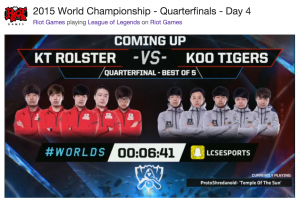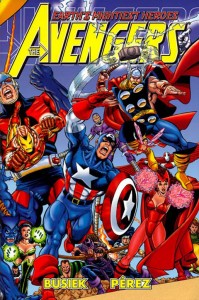by John-Michael Estilles
Are strict laws regarding copyright and trademark beneficial for boosting an economy?
Strict copyright laws negatively impact the state of the economy. The current laws in the Australia are an example of strict copyright laws not entirely benefitting the progress of the economy. These laws were originally intended for the progress of science and arts however the extensions to copyright laws have instead limited progress. This is due to the restrictive nature of laws on the advancement of innovation and creativity which are both crucial to the growth of the economy. In the video game industry there are examples where today’s laws have slowed down the development of work over minor issues because developers have abused the rights that they have. This has negatively impacted the industry. Then there are examples of large companies that promote innovation and creativity which have contributed the birth of a new industry communicating that less restrictions are beneficial for progress. These case studies show how the current laws are not constructive and that the promotion of innovation by less strict laws is what will boost the economy.
A new industry.
A significant section of the video game industry are not taking advantage of their copyright for the benefit of others. The streaming of video game playing on platforms such as Twitch.tv and YouTube known as ‘Let’s Plays’ has opened new economies of online video production. Many large video game developers are lenient when it comes to the streaming of their video game content and these streamers can even go as far as earning monetary rewards through YouTube and Twitch.tv ad revenue via partnerships with game companies using their intellectual property. There are conditions to the use of their content but there is enough freedom for Let’s Players to benefit from. Examples of large companies that allow this are Microsoft, Mojang, Activision and EA games (Xbox 2015; Mojang Support 2014; Greene et al 2015) . Microsoft has this in their terms and conditions; creators are allowed to produce personal, non-exclusive, non- personal, non-exclusive, non-sublicensable, non-transferable, revocable, limited license for consumers to use and display game content and to create derivative works based upon game content, strictly for their personal, non-commercial use however “[they] may make [their] item available on Youtube or Twitch and participate in programs on those sites that allow [them] to earn revenue from ads displayed in connection with [their] item”(Xbox, 2015). Microsoft still owns the content being displayed however ‘Let’s Play’ creators can gain money through YouTube and Twitch’s advertising programs. Video game streaming has grown to a level that it can be considered an industry within an industry. There are individuals who make a living from ad revenue programs and streaming video game content. Streaming has also promoted a boost in e-sports which garners millions of views every month in Twitch (Levy 2014). There has also been the rise of online brands such as Rooster Teeth, Achievement Hunter, Machinima, PewDiePie who currently have the most subscriptions on YouTube, and Twitch, which relies on video game streaming alone (Twitch 2015). These companies and individuals rely on the freedom that game companies allow. If there were tighter restrictions on the streaming of video games, then large brands like these will be highly affected.
This freedom that video game developers have given to ‘Let’s Players’ promotes innovation and it has resulted in new works. Developers have every right to discontinue the production of these videos but many have chosen to support it because it advantages both parties. Content for the streamer, free advertising for the company (Mojang Support 2014). In the past, Microsoft has paid YouTube creators to promote their new Xbox One and EA has used them to advertise their games such as Battlefield 4 and Need For Speed. Other developers are following this trend (Greene et al. 2015). Video game streaming has become a growing industry that generates millions of dollars. Twitch, a video streaming platform that focuses on live video game streaming, was sold for $970 million to Amazon.com (Levy 2014). It shows how serious players outside the video game industry are taking this phenomenon seriously. Rooster Teeth started their production company by creating derivative work from the blockbuster video game, Halo: Combat Evolved. They have made an incredibly successful series called Red vs Blue which has accumulated millions of views in different video platforms (Rooster Teeth 2015). They now have over a hundred employees and has produced many shows including their own feature film. Another large brand, Machinima, also started by creating derivative work from video games and videos of gameplay. They now employ many and support other YouTubers (Machinima 2015). Felix ‘PewDiePie’ Kjellberg made over $7 million dollars in 2014 recording gameplay and uploading them online (Miller 2015). This illustrates that tighter copyright laws might affect a billion dollar industry. In turn affecting large brands that have made a living on this innovation; detrimentally affecting jobs while offering no obvious benefits to the companies that own the IP. This situation is similar to earlier innovations that rely on existing property. Technology companies such as Apple Inc, relied heavily on the previous work of other companies such as Xerox to produce new and inventive technology (TED Talks 2012). . Nintendo is an example of tighter restrictions impacting creators negatively. Games that are owned by Nintendo do not allow creators to monetise content they produce using Nintendo games. They are only allowed to do so by signing up to a partnership program and splitting their channel’s revenue. This program has had many complaints from gamers and is seen as something negative to the income of gamers (Greene et al 2015; Campbell 2014). Fewer restrictions is what society should be promoting across all industries as it encourages the creation of new work and benefits the economy.
Slowing down development over a name.
Trademark disputes are also a site of contestation as companies push the boundaries of monetising public discourse. Current trademark laws give developers the power to file a lawsuit against parties that breach them. This allows developers to protect their work and it keeps others from stealing their ideas. Unfortunately, there are companies who have abused their trademark rights. Bethesda, a video game developer studio, owns the trademark “Elder Scrolls” for their video game series “The Elder Scrolls”. Mojang, a small developer studio that was independent at the time, requested to file the trademark of the name, “Scrolls” for their upcoming video game. Zenimax filed a lawsuit and pushed for a cease and desist of Mojang’s development of their game “Scrolls.” They claim that it causes confusion with their own property even though there is a large difference between the two games. Elder Scrolls is a roleplaying fantasy adventure game while Mojang’s Scrolls is a virtual card game. This is due to Zenimax owning the title “Elder Scrolls” as well as the individual words, “Elder” and “Scrolls”. Mojang has been permitted to use the words ‘“Scrolls” but are restricted to using it solely for the one game and are prohibited from using the title on a sequel of the game (Webster 2011; Gallegos 2012). Bethesda owns another popular game, Fallout. Jordan Maron, founder of the independent developer studio Xreal, attempted to develop a mobile application called Fortress Fallout. Zenimax filed a lawsuit against Maron and forced him to change the name of the game (Yin-Poole 2015). Another game company, King, responsible for the extremely popular game Candy Crush Saga, owns the trademark of the word ‘Saga’ in the field of software and has requested for the licence of the word “candy” (Lien 2014). The trademark for the word candy has been withdrawn but not before it affected many developers and their apps.
The laws on owning the trademark of common words affect the development of future video games. Zenimax argues that “failing to protect a trademark could be damaging to an owner’s rights” (Yin-Poole 2015) which is fair as companies have the right to protect their property. However, there is the issue of owning generic words. This represents a privatisation of the public discourse which favours agents with deep pockets. In the Zenimax versus Mojang dispute, Mojang would have been able to spread their trademark of “Scrolls” throughout many platforms such as TV shows, clothing, movies, radio shows, and even educational materials which will affect industries beyond video games. If individuals can acquire the trademark of an everyday word such as ‘candy’ then there is no clear limitation on what is allowed to be obtained. Large companies are able to muscle their way to a legal victory as smaller companies do not have the resources to fight them (Lien 2014). These are the cases where the current laws on intellectual property are an issue. Something as simple as a name is affecting the development of video game which in turn affects the people developing them, their job status and the economy within the video game industry. Since these companies are able to file a trademark beyond video games, this has the possibility of reaching other industries which will become an issue.
The Need for Innovation and Creativity
Innovation requires the copying and transformation of already existing properties and it is important as “innovative new technologies provide enormous social and economic benefits to society” (Griffin, 2015). Game developers allowing fans to stream their video game is innovation. It added video streaming platforms and video game content together and created a small industry that is growing. Increasing the protection of copyright carries the risk of preventing innovation (Griffin, 2015). If creative minds are prohibited from using already existing property, there is a potential to slow down the advancement of new creative art and technology. The regulations of simply naming a video game have already affected the industry by skewing in favour of larger companies and slowing down the development of video games; such as Nintendo’s restrictions over their intellectual property have had a negative impact on those who rely on game content as their primary source of income. If something as simple as a name can slow down production, then restricting similarities in things more complex such as images, gameplay, and story will further affect game development. “Incumbent intermediaries that control the access to content will slow down innovation” (Griffin 2015). If the freedom to be creative is limited then the growth of the economy will also be limited. The ability to sample other work and remix it has allowed many industries to grow in the past. Apple’s products are derived from other technologies banded together to create something brand new . Many musicians, like Bob Dylan and the band Led Zeppelin, have sampled and remixed songs to create new work throughout history. Seventy four out of a hundred of the highest grossing films of the last ten years are either sequels, adapted works or remakes (Ferguson 2015). These include the Marvel films, Harry Potter series, and even stand alone films like The Wolf of Wall Street and The Departed. In the past Disney has used the works of the Grimm brothers in their films such as Snow White and Cinderella. Billions of dollars flow through these big names in their respective industries and they have all created something new out of things that have already existed. The economy today will be different if these innovators were not able to sample work that already exist. It is unfortunate that today’s generation will not be able to take full advantage of already existing art and technology of the previous generation and build upon it due to the restrictions of copyright.
Current laws in the US limit innovation.
Similar to Australia, the copyright laws in the United States of America were originally created “to promote the progress of Science and useful arts by securing for limited times to authors the exclusive right to their respective writings” (Constitution of the United States of America 1787). To put it simply, congress protects the rights of authors and in return authors continue to produce more work (Grey 2011). The original length of time for copyright protection was 28 years. Congress and authors have pushed for this extension as they claim that it is too short to make a profit and this has lead to the change in the length of time of copyright four times (Grey 2011). The most current extension is the original creator’s life plus seventy years after death. It allows an individual to own the rights to their property and their family to continue to profit long after they are dead. A practice doubtful to encourage new works. “Dead is the point at which literally no incentives in the whole universe can compel you to write one more screenplay because you’re dead”, notes CGP Grey (2011) wryly. “This near-infinite control subverts the whole purpose of copyright”; To promote the creation of more work. Griffin (2015) also states that very few recordings continue to generate income after ten years making an extended copyright licence that lasts for more than a hundred years on that piece of music minimally beneficial for the dead artist. Creative minds today are not able to take full advantage of works of previous generations due to extended copyright terms. It is possible to obtain the rights of recent work but they tend to be expensive and difficult to obtain. The disputes between the video game companies mentioned earlier are examples of the current laws limiting innovation because of a generic term being owned. CGP Grey (2011) goes on to state that the original copyright protection period would have lead to more and potentially better Star Wars films that would have resulted in new artists producing more work instead of the prequels that George Lucas produced. The parties that benefit from the extended copyright length are the large companies who own the work of the original writers and not the dead writer itself. Instead of allowing many creative minds to build on top of them and promote the creation of more works as the original copyright laws were intended for, these laws allow companies to restrict the use of the dead author’s work and prevent individuals from innovating. This restriction on innovation is not beneficial for the economy.
Trans Pacific Partnership
Freedom to create is constantly threatened further today with the advent of legislations such as the recently ratified Trans Pacific Partnership Agreement (TPP). The TPP which stands to have extremely negative effects on the use of IP. Article 4.1 of leaked TPP documents reads that rights holders may “authorize or prohibit all reproductions of their works, performances, and phonograms, in any manner or form, permanent or temporary (including temporary storage in electronic form) (TPP, 2011), meaning even transferring a file to a USB is illegal. Jane Kelsey argues that the movement against TPP was triggered by the public’s fear that happened because people understand this is not about ‘free trade’, but that corporate interests are seeking to remake global rules in their interests (Kelsey, 2015). “Some trade agreements have clauses which allow foreign investors to sue governments, on the grounds that a law or policy ‘harms’ their investment.” Dr. Patricia Ranald (AFTINET, 2014). This can be observed through cases like Phillip Morris attempting to sue the Australian Government on the implementation of plain packaging. The TPP is one such agreement that if implemented successfully will allow big corporations to sue individuals for infringing even the most mundane things like making a meme or funny GIF using a popular film (Reed, 2015).
The economy partly relies on building upon what came before. This is innovation. There are companies who promote innovation by allowing their work to be used by others and this was the inception of multi billion dollar industries in technology, art and entertainment. This is an example of innovation boosting the economy and it is what should be promoted. But unfortunately there are laws regarding intellectual properties that large companies have taken advantage of and has slowed down progress. The original copyright laws in Australia were to promote the advancement of creative work and technology but these restrictions that new authors face have slowed them down, restricted creativity and are not completely helpful to the advancement of the economy.





